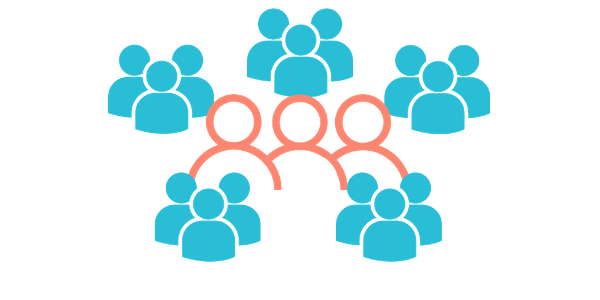World Rare Disease Day: definition, treatment, care and discussion
Published Feb 28, 2019 • By Louise Bollecker

What is a rare disease?
A rare disease is a disease that affects very few people: less than one in 2,000 in the European Union, less than one in 1,500 in the United States. Rare diseases affect 25 million people in Europe and 27 million in the United States. Thus, some of them concern thousands of people, others only a few individuals. More than 8,000 rare diseases have been identified but their diagnosis is difficult because of the small number of patients and because the symptoms can vary widely from one person to another. One in three patients are not diagnosed for their condition.

80% of these rare diseases have a genetic origin, sometimes hereditary. The vast majority of rare diseases are called "orphan" diseases, which means that there is no treatment. Yet, it is estimated that two-thirds of these diseases are serious and disabling. Patients often receive palliative care to alleviate symptoms, preserve their quality of life and extend their life expectancy, but many do not recover.
Treatments for rare diseases
It is difficult to train health professionals in all these diseases that affect only a few patients, especially since multidisciplinary management is often required to help patients. Coordination between doctors and specialists is essential to train the patient to adopt a healthy lifestyle, to understand their disease and to receive appropriate care.
Make your voice heard! Answer our surveys here
Treatments are also expensive to develop by laboratories because they will only be used by a limited number of people. That is why donations from individuals are so important to help research. Nevertheless, in the United States and Europe, aids and procedures are in place to promote research on these orphan diseases. 40% of the molecules currently developed in the European Union concern rare diseases and 410 drugs are in development. On 22 and 23 March 2019, the first European Congress on e-Health and Innovation in Neuromuscular Diseases will also be held, bringing together the largest European congregation of e-Health professionals involved in neuromuscular diseases, particularly rare diseases.
Gene therapy and cell therapy
These two therapies are innovative processes that are favoured by research to treat rare diseases. Gene therapy consists of inserting into the patient's cells a normal version of a gene that does not work and is at the origin of the disease. The functional gene then allows the patient to produce again the protein whose deficiency was the source of the disease.
Professional life: what rights to integration for patients?
Cell therapy is the grafting of cells to repair or regenerate a damaged organs or tissue. These cells, which come from the patient or a donor, are cultured to be multiplied or purified. When they come from the patient, they are modified in order to be "corrected" by transfer of a non-ill gene or by correction of the gene.
Public policies on rare diseases
The US has aimed at supporting public health approaches and reduce the burden of the patients affected by a rare condition : as early as 1983, Congress passed the Orphan Drug Act, the first major federal statute for rare diseases. This law encouraged the production of orphan drugs (medication developed to treat rare diseases) by providing financial incentives to pharmaceutical industries to offset the potential losses of marketing drugs to such a small market. It includes research grants, tax credits, fee waivers and a seven-year market exclusivity for approved medication.
Read our article about paying for medical bills
Other pieces of legislation in the US include the Rare Disease Act, which established the Office of Rare Diseases at the National Institutes of Health (NIH) and legislation for single rare diseases, such as the MD Care Act (for Muscular Dystrophy Community Assistance, Research and Education Amendments of 2001).
Rare diseases on Carenity
Carenity strives to identify as many pathologies as possible so that everyone can express themselves. You can search for them in order to add them to your profile by clicking here. This will make it easier for you to access ongoing discussions on the subject. Even if there is no discussion group dedicated to your illness or that of your loved one, there are multi-pathology forums, such as nervous system diseases, cardiovascular diseases, skin diseases, kidney diseases, diseases affecting the immune system or muscles, joints and skeletons, diseases of the respiratory and digestive systems, liver diseases, etc.

Other groups we have created seek to address general themes that all patients and their loved ones, whether they have a rare disease or not, may face:
-Faced with the administrative difficulties shared by many patients, visit our forum dedicated to rights and administrative procedures.
-Is your illness or that of your loved one painful? Discussions are ongoing on our group "Living with chronic pain"
-Is it your child who is concerned? Talk about your fears, treatments and daily life on our group dedicated to parents of sick children.
Join the discussion groups that interest you so you don't miss any of the ongoing discussions!
Discovering rare diseases: two testimonials from Carenity members
Isabel's testimony: Isabel is a member of Carenity and suffers from proximal spinal muscular atrophy. A former nurse, she explains her daily life and her struggle for appropriate care.
Click here to read Isabel's story
Epéedargent's testimony: a member of Carenity France, Epédargent is suffering from mastocytosis. He tells us how it took him many years to get a diagnosis and take charge of his condition.
Click here to read the story of Epéedargent
Delphine's testimonial: suffering from Ehlers-Danlos syndrome, Delphine testifies to her years of diagnostic wandering in the face of increasingly disabling symptoms. This story is part of a student's photographic project on the theme of chronic pain.
Click here to read Delphine's testimonial
Comment on this article to discuss rare diseases together. In three words, how would you define these diseases? How can they be better managed?
Sources : US National Library of Medicine, UK Strategy for Rare conditions, AFM Téléthon, Fondation Maladies Rares, Organisation Mondiale de la Santé
Carenity
3 comments
You will also like

Spoon theory: What is it and how can it help people living with chronic illness?
Apr 13, 2022 • 7 comments

What is the psychological impact of chronic pain? Carenity members share their experience!
May 27, 2021 • 8 comments

 Facebook
Facebook Twitter
Twitter



